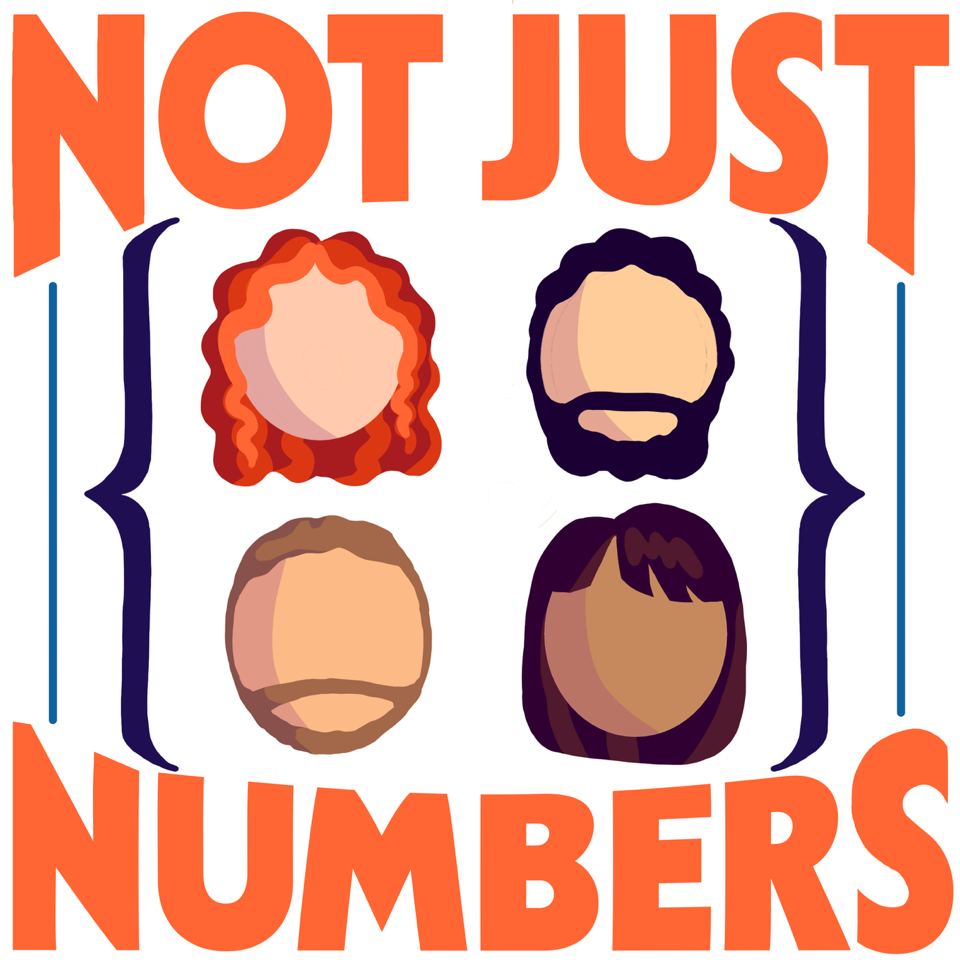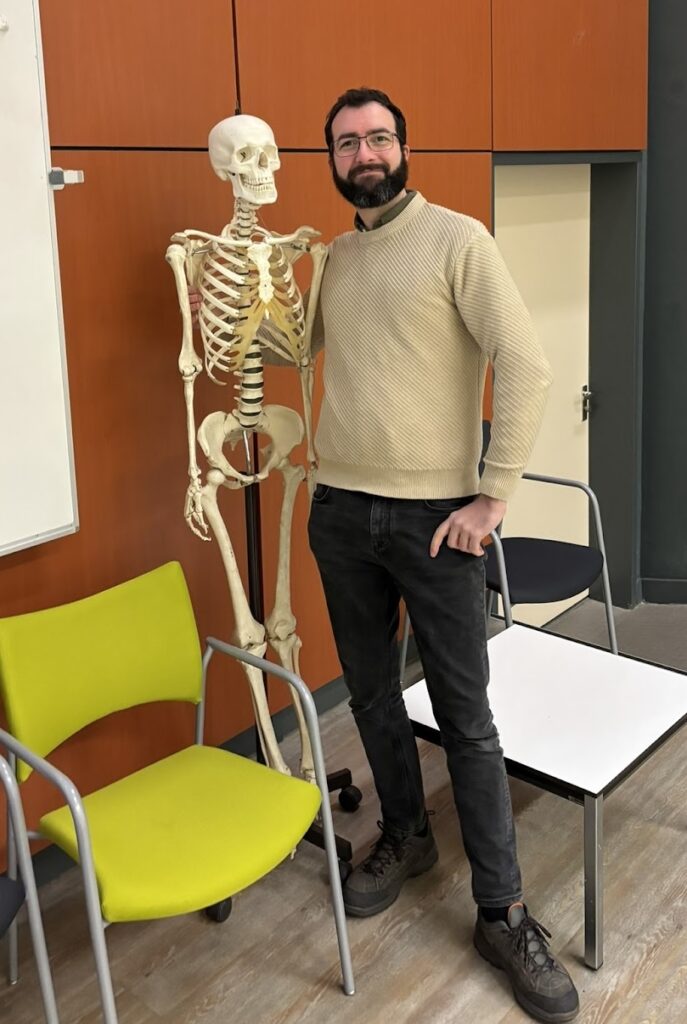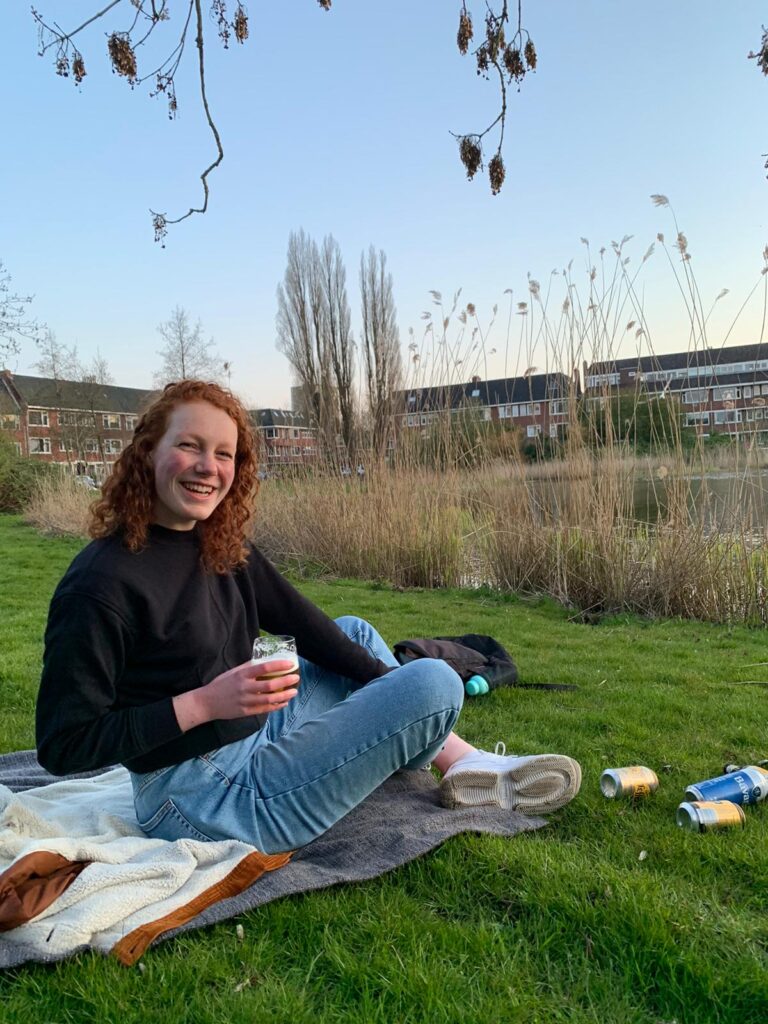In this series of posts, we’ll be featuring mathematical podcasts from all over the internet, by speaking to the creators of the podcast and asking them about what they do.
We spoke to Marcello Seri and Marit van Straaten from the Bernoulli Institute at the University of Groningen, about their podcast, It’s Not Just Numbers.
Podcast title: It’s Not Just Numbers
Website: podcasters.spotify.com/pod/show/not-just-numbers
Links: Apple Podcasts, Spotify, Google Podcasts
Average episode length: 1 hour
Recommended episodes: Intro Episode, Teaching Mathematics (S1E03)

What is your podcast about, and when did it start?
The idea for the podcast was born during the pandemic. In a break between online lectures we discussed with some students how hard and time consuming it can be to solve the homework exercises, and this somehow led us to talk about their perceived idea of their lecturers. It was quite mind-blowing how far from the truth this was, and how much the stereotypes from mathematical movies were shaping their impressions. We think that part of this came from the fact that they always see the “lecturer/supervisor” side of us and rarely have a chance to see the rest.
To counter this, It’s Not Just Numbers aims to address some common misconceptions and stereotypes around mathematics by showing the human side of it. In each episode we invite two mathematicians to talk about their drives, their aspirations, and the other hobbies they have outside mathematics. We use the discussion as an opportunity to get to know our guests and also present different sides of what being a professional mathematician entails. Moreover, we discuss a topic that is related to Mathematics, for instance what is involved when teaching Mathematics.


The podcast is hosted by us: Marcello Seri, an associate professor in mathematics at the Bernoulli Institute of the University of Groningen, and Marit van Straaten, a final year Master student at our institute. We record with the invited guests using facilities provided either by our faculty, or by FSE Radio, a group of student podcasters at our Faculty with their own recording room. For the editing and the planning we take turns among each other depending on how busy we are. The podcast is hosted on Spotify for Podcasters (formerly Anchor) and available on all of the major podcast platforms.
Who is the intended audience for the podcast?
Broadly speaking, everybody that is curious about mathematics and mathematicians and what they are like. Looking at our stats, it seems that so far we are reaching young people interested in knowing what being a mathematician is like, be they just curious, potentially interested in enrolling in a mathematics track or already studying some scientific subject and curious to know what mathematics lecturers are
like and what they do.
What is a typical episode like?
The episodes are released on a monthly basis, the first Sunday or Monday of the month. They are structured in two parts: in the first half we interview our two guests to get to know them. We look into how they ended up becoming mathematicians, what motivates them and what they do besides mathematics. In the second part we look into some mathematics-related themes. This can vary a lot, from covering different aspects of our jobs as mathematicians to exploring what you could do outside academia as a mathematician.
The episodes are planned less as an interview and more as a discussion among the four of us, so while we have some initial idea and we stick to the two-part structure, the discussion flows freely wherever our collective dialogue brings it. The idea is that this gives a more spontaneous and truthful picture of who and what we are like.
In this first season we focused more on mathematics: teaching and studying it, engaging with people outside our university, and looking briefly at some fields of mathematics and how they relate to each other. In the second season, which will start some time in the fall, we will shift more towards the “aftermath”, what working as a mathematician can be like. Many of our listeners were curious to hear about the experience of doing a PhD, what is the academic career path like for mathematicians and, in general, what people do with mathematics outside academia.
Keeping the format that we have now, we plan to get a bit more into these topics, with the plan to also start looking also outside our department, and perhaps outside our university. We would also like to explore what you can do with mathematics “outside mathematics”: for example, we are trying to plan an episode about philosophy of mathematics for next year.
Why should people listen? Why is it different from other mathematical podcasts?
Our podcast is less about specific mathematical topics and more about the mathematicians and the surroundings of being a mathematician. This makes the podcast accessible to a broad audience, as a mathematical background is not required.
We aspire to show the people behind the trade and how varied and different their experiences are, hopefully demystifying some usual misconceptions and stereotypes and providing a glimpse to many aspects of being a mathematician that are rarely discussed. So far I have not seen other podcasts going in this direction in the same way as we do here, although I can see some analogy at least in our objective of bridging the gap between people and mathematicians with the Chalkboard Ultra podcast previously featured here.
What are some highlights of the podcast so far?
Recently, we made two episodes about applied mathematics and theoretical mathematics, discussing the boundary between the two fields. It was a good opportunity to show that the difference between mathematics and applied mathematics is not as vast as students sometimes perceive, and that it is quite common that people switch from one field to another.
Besides this, many other insights can be taken from every episode. Each person brings with them a whole different view, making each episode special in its own way. Being able to hear the experiences of your lecturers as a student is extremely valuable. It really helped to put my (Marit) own struggles into perspective, and we have heard from other students that the insights they gained from our podcast have significantly helped them in their academic related challenges. The ability to help fellow students is the biggest highlight of all!